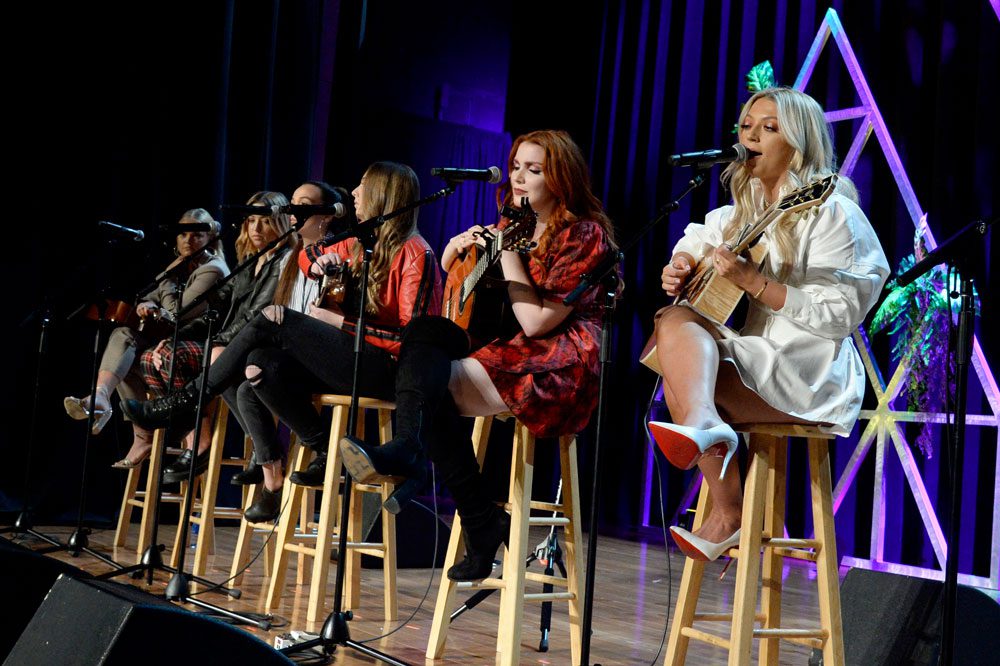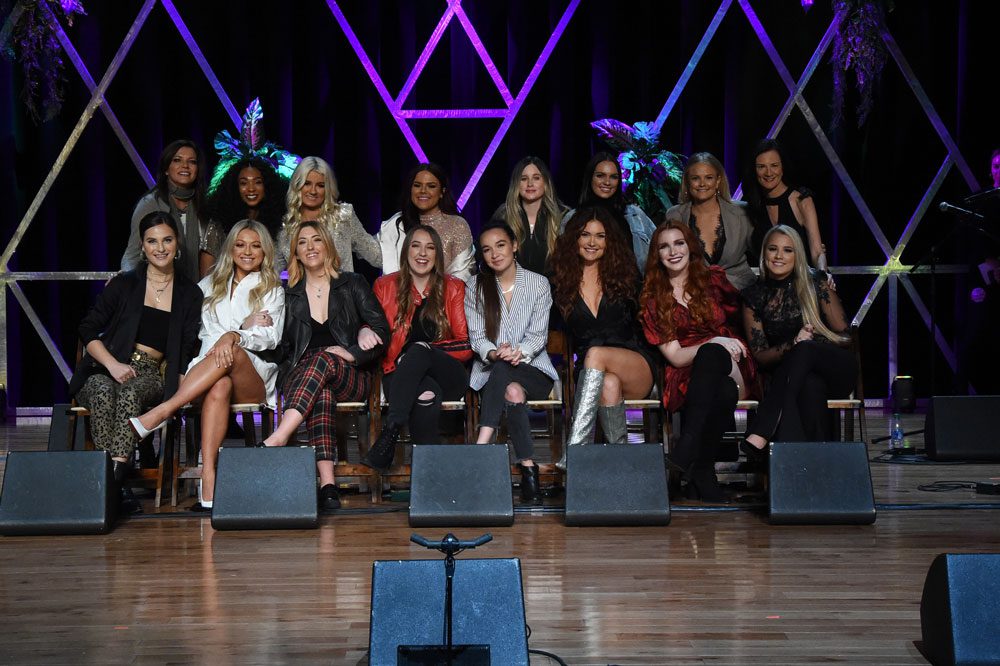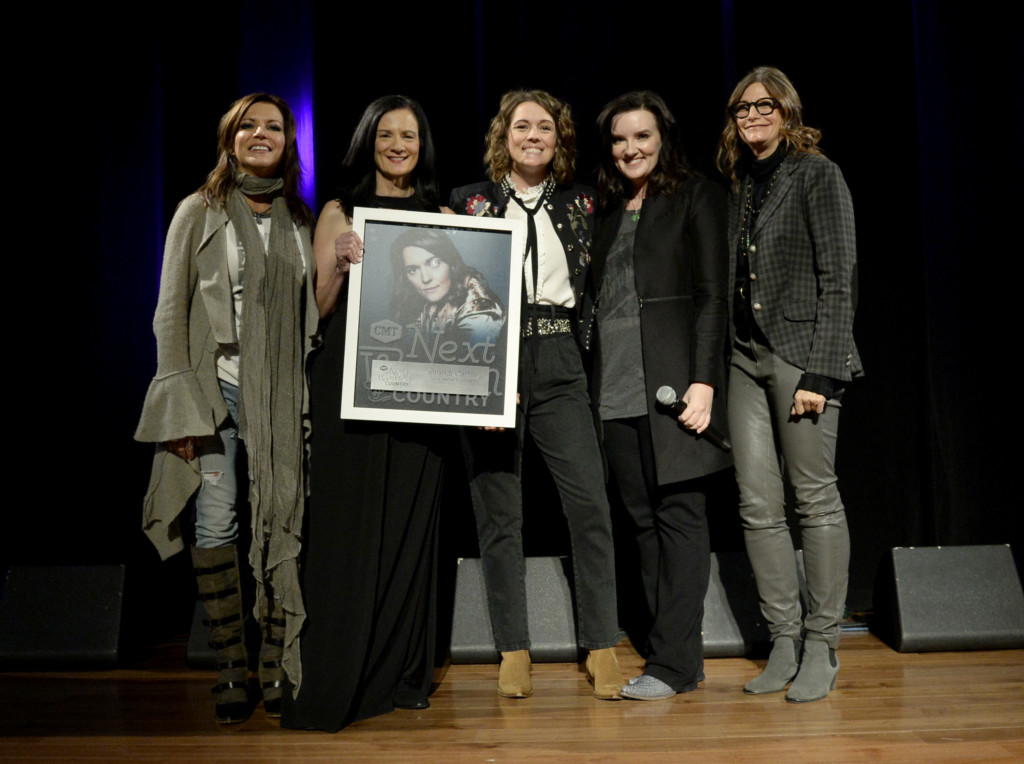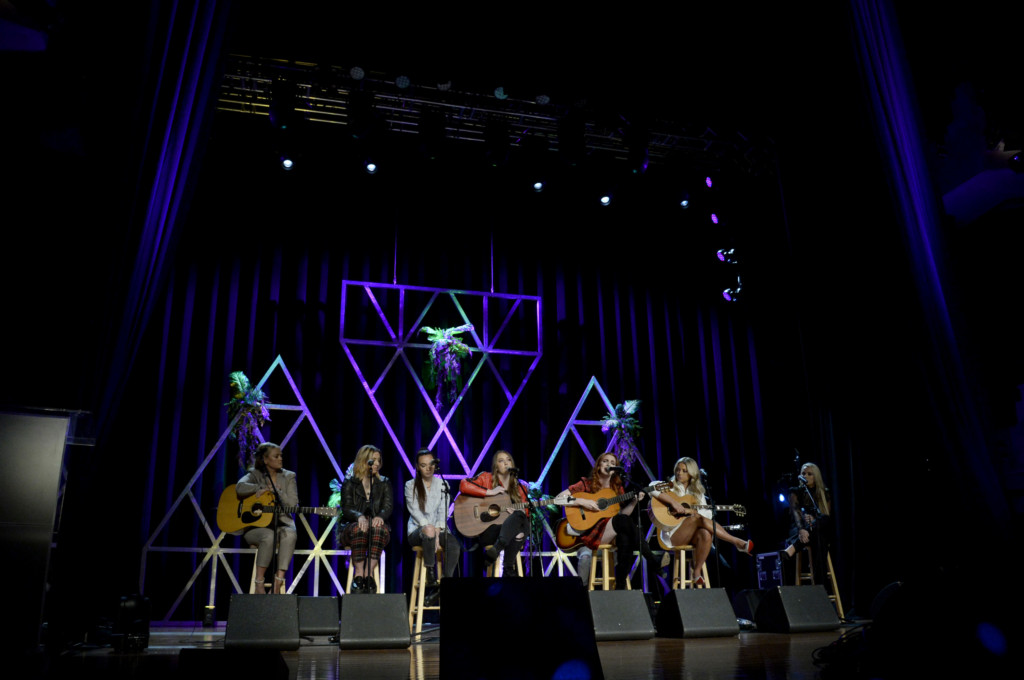

On January 21, CMT announced that it would devote half of its primetime video hours to female artists, effective immediately.
For years, the conversation surrounding the dismal statistics that prove women are played significantly less than men have dominated the Nashville media cycle, but a recent resurgence of this issue inspired CMT to make a serious power play toward equality.
In January, Variety reporter Chris Willman remarked on Twitter that he heard a Los Angeles country radio station play songs by Gabby Barrett and Kelsea Ballerini back-to-back, nodding to an urban legend among the music industry that country radio is discouraged from playing two female artists in a row to maintain listenership. The comment received a since-deleted reply from a representative at 98 KCQ, a country station in Michigan, stating that they are not allowed to play two female artists back to back. The exchange prompted a firestorm of responses, including replies from Ballerini and Kacey Musgraves. “Smells like white male bullshit and why LONG ago I decided they cannot stop me,” Musgraves defiantly responded, while Ballerini used her platform to proclaim, “to all the ladies that bust their asses to have half the opportunities that men do, I’m really sorry that in 2020, after YEARS of conversation of equal play, there are still some companies that make their stations play by these rules. It’s unfair and it’s incredibly disappointing.”
https://www.instagram.com/p/B7YnjWHFxEg/
Five days later, CMT announced that half of its 29 primetime video hours now feature female artists, balancing their previous statistics that offered male artists 60 percent of those primetime hours. “We wanted to look at ourselves first and say, ‘What more can we be doing?’ This to us was the quickest thing we could do,” CMT Senior Vice President of Music & Talent Leslie Fram tells Audiofemme about instituting the new format. “We felt that another year would go by with another research study that said the same things, and we were like, ‘We have to take action somehow.’”
In December 2019, Dr. Jada E. Watson, an adjunct professor at the University of Ottawa, released a comprehensive study showing the severity of this underrepresentation on radio. Gathering data between 2002 and 2018, Watson’s findings showed that top female act Carrie Underwood received roughly 3.5 million spins – half the amount of her male counterpart Kenny Chesney with 6 million. Additionally, female acts often hear the same false narratives from executives, such as “women don’t want to hear women,” while radio consultant Keith Hill made the controversial claim, “if you want to make ratings in country radio, take females out,” in a 2015 interview with Country Aircheck.
To help combat this inequality, CMT immediately put the 50/50 airplay initiative into action with five of the ten videos played on the channel per hour representing female artists. Fans get to see the videos that established the likes of Reba McEntire, Tanya Tucker and Martina McBride as legends, and the cinematic beauty of videos by modern superstars such as Carrie Underwood and Brandi Carlile. The tactic also provides an important platform for Nashville’s rising stars like RaeLynn and Madison Kozak, the first artist signed to Nashville’s new all-female label, Songs & Daughters. “You’ll be able to see the breadth of a female artists and you’ll see some people that are outside the lines of country that aren’t right down the middle,” Fram describes. “It’ll be very diverse.”
Effective immediately all music video hours on CMT and CMT Music channels will have complete parity between male and female artists. That means 50/50. #CMTEqualPlay
— CMT (@CMT) January 21, 2020
When the news broke, many fans and artists alike took to social media with notes of support and celebration. But several social media users also responded with sexist comments, calling the strategy “a sick joke,” “forced pc” and “a horrid idea.” Fram explains that such a mindset stems from a lack of understanding of the plight women have faced trying to break ground on an uneven playing field. “For anybody out there that says we’re forcing this and it’s a gender issue, it’s not. Women are having to work harder, they’re doing everything that they’re asked to do, and they’re still not getting the exposure, which to me is really unfair,” she responds. “We’ve always said let the best songs win, but women haven’t had an equal playing field. There’s so much great music out there and so many meaningful songs.”
CMT’s equal airplay also compliments its Next Women of Country program, founded by Fram in 2013, which provides resources to up-and-coming female artists. It also includes the annual CMT Next Women of Country Tour, which sees current headliner Tucker performing in more than 40 U.S. cities alongside a rotating troupe of up-and-coming female artists. With the new measure, Fram aims to establish a well-rounded genre that reflects the views of all types of people, breaking down the obstacles that stand in the way of certain artists being able to share their voices and artistry.
“It gives them a chance to have a career based on their music. It needs to be about the music first and foremost, to really give them a shot at having a career,” she says of her vision for the initiative’s impact on artists. “My hope is that we break that cycle and that more women get signed, have an opportunity to get in those writing rooms, have an opportunity to get on tours and really have the career that they dream of.”




